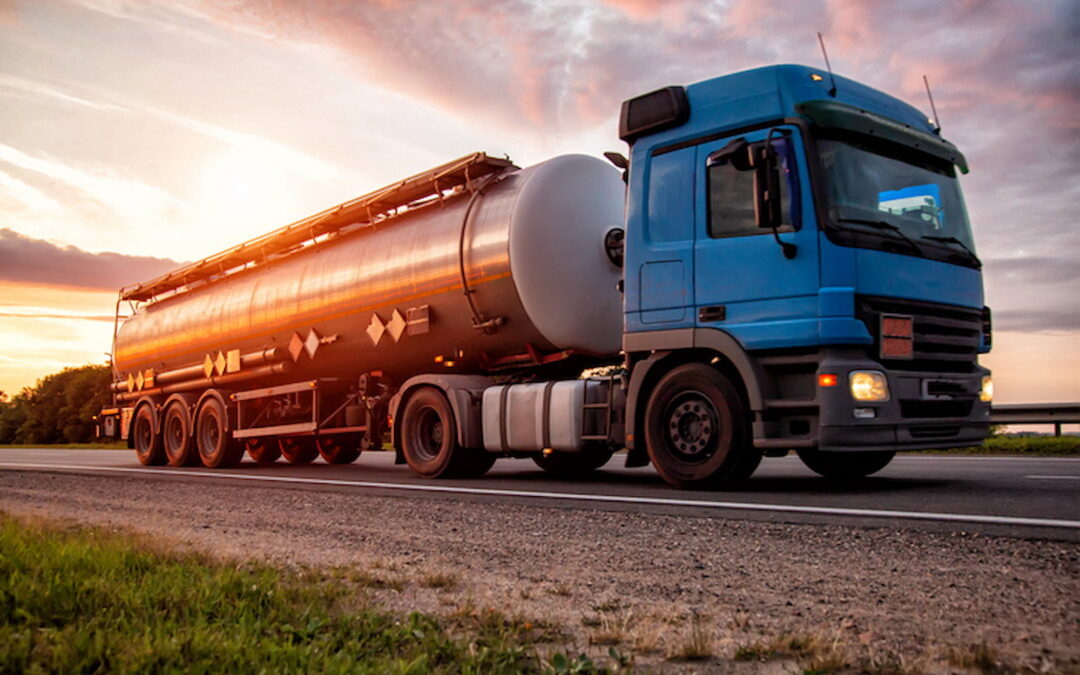With a market reaching nearly 48.9 billion USD, the importance of tanker trucking has been shown in U.S. domestic shipping. Despite this, shippers only know little about this type of transport. This article will be an introduction to tanker trucking and give a brief explanation of the goods shipped by tankers. Not to be confused with tanker ships, tanker trucks are vehicles with cylindrical tanks that carry liquids. Tankers trucks have different sizes, which include:
- Light Duty – A volume capacity of up to 1,000 gallons.
- Medium Duty – A volume capacity between 500 to 4,000 gallons.
- Heavy Duty – A volume capacity from 5,500 to 9,000 gallons.
The earliest tanker trucks were created in 1905 and moved oil. Before that, horses hauling carriages would transport the oil. Over time, tankers began carrying other liquids, chemicals, gases, and dry goods.
Types of Tankers
The most common type of tanker used in domestic shipping a fuel tanker. These carriers haul petroleum-derived products like ethanol, diesel, and gasoline. Since the tank carrier usually has different compartments, multiple fuels can transport simultaneously. Since the fuels are hazardous, drivers must follow strict regulatory compliance laws. An example is a Hazmat classification, a code that has vital cargo information. Another popular kind of tanker carrier used in domestic shipping is the food tanker. Food tankers are carriers that move consumable products from the production site to the required place.
These goods include alcohol, corn syrup, vegetable oils, milk, and other liquid foods. Since customers will eat this cargo, the tankers are temperature-controlled and insulated to prevent damage. An alternative type of tanker for moving freight is the dry bulk tanker. These carriers vary from food and fuel tankers since they haul solid, non-liquid materials. The shipments can include building supplies like cement, dry foods like rice and sugar, and chemical powers. Dry bulk trailers are vacuum sealed, which helps prevent the contamination of the products. Along with the tanker types mentioned, there are less common kinds, like asphalt and compressed natural gas tankers.
What is the Importance of Tanker Trucking?
The tankers mentioned briefly introduce this kind of domestic shipping but only begin to explain its significance. Tankers are responsible for transporting the gas that drivers pump into their cars at stations. This carrier type also ships many products sold at markets. Since the carrier’s creation in 1905, the most significant change has been greater safety precautions. Not only in driver training requirements but also in truck structure. For example, modern tankers have vapor and spill prevention structures to lessen the effect on the environment.
While various industries use tankers to move goods domestically, this carrier type may seem unfamiliar to first-time shippers. Starting may be confusing for beginners in the shipping industry. Becoming CDL licensed may also be tedious for a shipper that only wants to make a few shipments. The best and fastest way to start is by hiring a freight broker to transport your load. Contact A1 Freight Solutions at 786-375-9420 or info@a1fsinc.com for a quote to start hauling cargo domestically. Whether you need tanker, bulk, drayage, or other solutions to move your goods, our brokers will help you get started.

